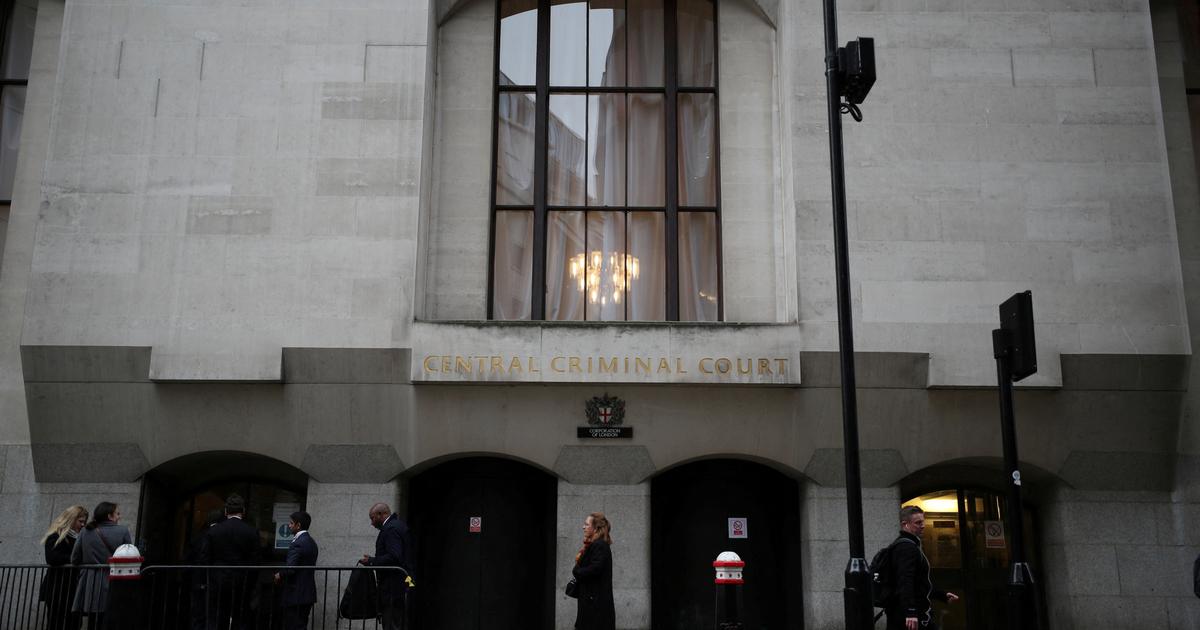Suddenly, that sporty and restless child stops running during recess; or that other, such a good student and always attentive in class, is unable to concentrate and lowers performance. They get tired, they get fatigued, they don't pay attention, they have joint pain or gastrointestinal discomfort. Or all at once. This is how persistent covid manifests itself in children: an amalgam of symptoms that persist over time after a coronavirus infection and for which there is still no treatment or explanation. The ailment is spreading faster than research on it, and the scientific community has not even agreed on its prevalence (proportion of people who suffer from it with respect to the total reference population): between 4% and 66% , depending on the study.The experts consulted confirm that persistent covid in children is real, but much research is needed to correctly measure its impact, know why it happens and how to deal with it. For now, they agree, at the consultation level the prevalence points to the drop and the prognosis, with the months, is favorable.
More information
The ómicron reactivates the suffering of patients with persistent covid
On New Year's Eve 2020, Mónica Portella's daughter began with gastrointestinal problems.
The following days more symptoms appeared, and a month later she was in bed, explains the mother.
“Extreme tiredness, muscle and joint pain, intestinal discomfort... His life is totally paralyzed.
He has not been able to return to class and has no social life,” says Portella.
The 17-year-old girl even lost her memory and concentration, but with a neurorehabilitation program she has recovered it.
Tachycardia and fatigue, however, persist.
And there is no doctor to give them a solution, laments the mother.
The World Health Organization (WHO) narrowed down a definition for persistent covid in adults at the end of the year: that nonspecific and varied symptomatology that people who were infected by covid three months before and whose symptoms last at least two months and do not show. can explain with another diagnosis.
But if in adults it is already difficult to combat it due to the lack of resources and scientific evidence, in children the situation is more complicated, points out Pilar Rodríguez Ledo, from the Spanish Society of General Practitioners: "In children it is more difficult to see the persistent covid because they usually pass the acute phase of the infection asymptomatically and that makes subsequent diagnosis more difficult.
A study carried out in 44 Swiss schools and published in the journal
Jama
compared symptoms consistent with prolonged covid between children who had tested positive and a seronegative control group: 4% of those who had had covid had symptoms more than 12 weeks after infection, especially tiredness, difficulty concentrating and a greater need for sleep. Among the negative group, the percentage was 2%. The results are very variable: an Italian investigation pointed out that 27% of the participants in its study had symptoms 120 days after the diagnosis of covid, and a British study for its part collected that only 1.8% had symptoms during at minus 56 days. Another review published in
The Pediatric Infectious Disease Journal
concludes that “prolonged covid in children and adolescents is limited, and all studies to date have substantial limitations or do not show a difference between children who had been infected with SARS-CoV-2 and those who had not”. According to the Carlos III Health Institute, in Spain more than 1.5 million people under the age of 20 have been infected with covid throughout the pandemic.
At the foot of consultation, doctors and patients navigate in uncertainty. Cristina Calvo Rey, president of the Spanish Society of Pediatric Infectious Diseases, maintains that, indeed, "the variability is very wide and depends, as almost always, on the methodology with which the studies have been carried out and on the criteria that have been considered to speak of persistent covid”. But exist, exist. “Patients require the necessary attention and understanding. They often feel misunderstood. There are very complete protocols available, carried out by paediatricians, on how to care for these children and what tests and visits must be carried out. Psychological care is always a fundamental part”, resolves the pediatrician.
The experts consulted agree that it is not always easy to detect them. Sometimes, they explain, they do not even give positive serological antibody tests to find out if they have passed the covid. This is the case of Mariona Vilà, 10 years old, who began with strange symptoms last February, although it was not until July that they were able to detect that she had suffered from the disease. All the tests came out negative, but she was getting worse and worse, says her mother, Mireia Peiró: “One day she fainted doing a dance show, and two days later she started with pain in the appendix area. Then came extreme fatigue. I was downcast. He had to leave school, dance classes, singing...”.
Mariona was referred to the Germans Trias i Pujol Hospital in Barcelona, which has a pioneering unit for persistent covid in children. With an individualized rehabilitation program she has improved, admits the little girl: “In the beginning my head hurt a lot and I was sad and overwhelmed because I couldn't go to class or see my friends. But now I am not as tired as before and I do my extracurricular activities normally, although sometimes I still get a little tired”. The recovery process was slow, almost a year, clarifies the mother: “She was pale, with bags under her eyes, and there was a time when she didn't even want to pick up the tablet. He got tired of putting up with it."
María Méndez, head of the hospital's Pediatrics service and head of the specialized unit, points out that the final cause of this disease is unknown, "but there is more evidence from the clinical picture and the repercussions." In the unit they have treated about 150 minors. “What most harms patients is fatigue and brain fog, which affects the ability to pay attention and understand. And it has more psychological repercussions because they cannot go to school or participate in their extracurricular activities”, he explains.
All the voices consulted agree that it affects adolescents more than young children, although Rodríguez Ledo admits that, as they are "imprecise and confusing" symptoms, the diagnosis in younger children is more complex because they themselves do not know how to explain what it happens to them Vicky Fumadó, a pediatrician at the Sant Joan de Déu Hospital in Barcelona, takes around twenty children with persistent covid: "The symptoms that persist the most are fatigue, headaches and, sometimes, palpitations and a lack of tolerance for exertion".
The key, some specialists point out, is "the change in attitude" suffered by the children: they stop doing activities, they are lethargic, they lose their appetite... Carlos Rodrigo, clinical director of the Pediatric Service of the Germans Trias i Pujol Hospital, exemplifies that this change is clearly seen in children who are athletes or in good students, who cease to be: “It is a very dramatic situation because it affects their clinical picture, depression, and that is when things can get confused. There are deniers of persistent covid, but what we have to do is recognize that this is happening to them and treat them.”
Toni Soriano, a doctor at the Pediatric Infectious Pathology and Immunodeficiency Unit at the Vall d'Hebron Hospital in Barcelona, points out that some symptoms associated with this clinical picture have also been described in uninfected people "and it may be due to the impact of the restrictions severe, the confinements...”. And he mentions the preliminary results (not yet peer-reviewed or published in a scientific journal) from the British study
The Clock
:
the researchers found that 15 weeks after their PCR test, both 66.5% of people who gave positive as 53.3% of those who tested negative had one or more symptoms.
Soriano participates in a study with the Copedicat research network of pediatricians from hospitals and primary care to analyze persistent covid in minors: “Those who present symptoms 12 weeks later are very few. Of about 230 children, we have seen two or three cases that had some clinical manifestation.
Raquel Jiménez, head of Pediatrics at the Niño Jesús Hospital in Madrid, points out that most of the symptoms are "subjective" —"tiredness, muscle pain, insomnia, sadness..."— and that complicates the investigation: "It is difficult to differentiate how many of these symptoms can be attributed to covid infection or the pandemic situation.
There is a percentage of children who have long-term symptoms, but we do not know if we can blame it on the virus.
That they exist is clear, but we do not know if we can attribute it to the viral infection
per se
, to the fact that other relatives have had covid and also have persistent covid or to other causes.
His team has started a study together with La Paz and Severo Ochoa to analyze the symptoms in children who have had covid and those who have not.
Unknown causes
One of the great unknowns surrounding persistent covid, both in adults and in young people, is its origin. Why is that happening? Why only certain people? According to Soriano, the main hypotheses indicate that "an autoimmunity phenomenon or exaggerated inflammatory response is taking place, or that there are viral reservoirs in the central nervous system or in the digestive system" that are causing these symptoms. Méndez also believes that "it is most likely that there is an exaggerated and persistent inflammatory response developed by the virus."
In any case, what the specialists do insist on is that the prognosis is favourable, that most of the symptoms subside over time and that it is necessary to approach the problem in a multidisciplinary manner.
“There is a significant percentage of children who improve.
We have seen kids who have recovered their normal activity and others who have been a year and the symptoms persist.
The families, for their part, ask for attention and specialized units, which do not leave them alone, points out Begoña Barba.
Her daughter was 15 years old when she was infected in November 2020 and started with headaches, tachycardia, numb arms and legs, hypotension and chest pain.
All these symptoms persist today: "My daughter, who had an active life, has had to stop and has not been able to go to school."
The feeling of extreme tiredness does not go away.
Each child is a world, experts insist.
Mariona, for example, is now better than her physical symptoms and has returned to class and her activities.
Although last night she began to cry, says her mother, when she found out that a classmate tested positive: she is afraid of going through the same thing again if she gets infected again.

/cloudfront-eu-central-1.images.arcpublishing.com/prisa/VOZWO2GBAZFRTC6ZS2HIY7FFT4.JPG)





/cloudfront-eu-central-1.images.arcpublishing.com/prisa/DGBAHEFAVJHQ3KPTADIVQQZ3VE.jpg)







